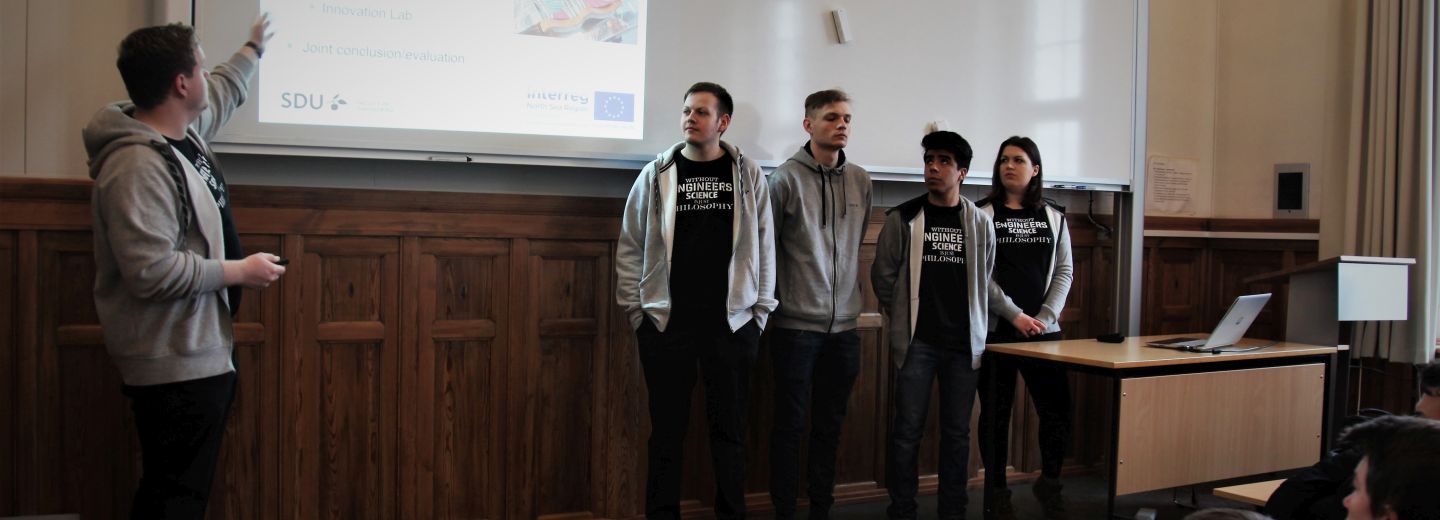
Sønderborg's schools to make a green mark
Schools in Sønderborg and its environs are to work on becoming more climate friendly in the coming months. It is not so much a question of replacing a coughing and spluttering oil-fired boiler, but rather a comprehensive project ranging from general approaches to how the individual students can do their bit to help the green transition on its way.
1911 was a good year. It was the year when the first flight across the USA concluded in Pasadena. The journey of 3417 miles took 49 days. Nobody thought about the CO2 emissions that pilot Carl Rodgers' little open cockpit, single-seater light aircraft released during the journey. Nor about how much C02 future flights would be guilty of emitting, for that matter.
C02 emissions, greenhouse gases and green energy were not something people gave a thought to in 1911. Nor when the first red brick was laid for Sønderborg's Statsskole in the same year. But something is to be done about it now.
Students to make a difference
The Mads Clausen Institute (MCI) at SDU Sønderborg and House of Science have entered the North Sea Region Interreg project '2IMPREZS', which is about persuading schools to become more energy effective, mainly through involving the students. The students will be prompted to change their energy behaviour by participating in workshops and competitions about getting their school to investigate energy effective solutions - and to undergo energy renovation.
The English word 'impress' can mean both to make someone feel admiration and respect, and also to make a mark. The hope is that Sønderborg's schools will achieve both meanings of the word with the '2IMPREZS' project.
MCI is contributing with workshops and research in smart energy applications, solar panels and business models, and engineering students will use the research to teach high school students. The whole project kicked off on Friday 2nd March at Sønderborg Statsskole.
- '2IMPREZS' will result in a best practice model for how best to engage high school students in becoming aware of energy, energy consumption and also expenditure. The idea is that the students will change their behaviour in relation to energy consumption. SDU will also develop a physical model (IEODM - Interactive Energy Optimization Demo Model) which students can use to convince decision makers and school leaders to invest in energy improving initiatives, says SDU Sønderborg's project manager, Lise Kanstrup.
Project manager for House of Science, Birgitte Bjørn Petersen, is enthusiastic about the new initiative, which fits in well with other climate-friendly initiatives in Sønderborg Municipality.
- We have a vision of being climate neutral by 2029: we have a collaboration with Unesco Learning City; we are focusing on sustainability; and we have the initiative Green Generation. This project ties everything together.
Birgitte Bjørn Petersen goes on to explain that all of the state schools in the municipality are equipped with an energy system, but that it is rarely used in teaching.
- In other schools in other countries, they have had good experiences. Why put on the heating on a Sunday when there's nobody at the school? Is it the five minutes of ventilation in the middle of the day that increases consumption, or is it actually because lights and computers are burning energy even when we're not using them? These are the kinds of thoughtlessness that students can spot and help to eliminate, she says.
'2IMPREZS' has eight partners in five countries - Belgium, the Netherlands, GB, Germany and Denmark. EUC South (HTX) and Tønder Gymnasium have pledged to participate in MCI workshops after the development phase with Sønderborg Statsskole. After this, other high schools in the region will be invited to participate in SDU's energy workshops. House of Science will organise activities with primary schools in the municipality. The activities with high schools and primary schools in Sønderborg are partly based on input from the project's Dutch partner Stichting Energy Challenges, which has delivered energy competitions with primary schools in the Netherlands and achieved a reduction in energy consumption of 15% among the participating schools. The expectation with '2IMPREZS' is to be able to achieve up to a 30% reduction of energy consumption at specific schools in the partner countries.